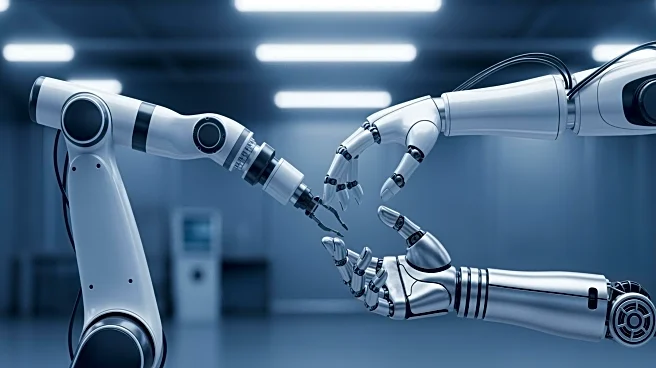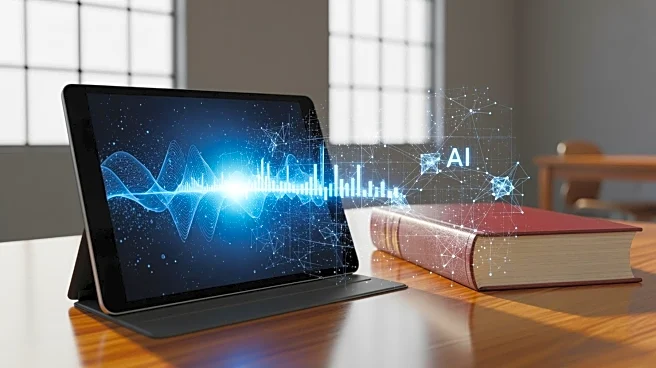What's Happening?
As companies like Amazon and Salesforce announce layoffs linked to AI integration, concerns about job displacement are rising. Federal Reserve Chair Jerome Powell has noted the trend, emphasizing the need for policymakers to monitor the situation. A World
Economic Forum report predicts that new technology will create 170 million jobs while displacing 92 million by 2030. The transition from an industrial to a digital economy is underway, with AI playing a significant role in reshaping the workforce.
Why It's Important?
The integration of AI into various industries presents both opportunities and challenges for the workforce. While AI can enhance productivity and create new job opportunities, it also poses a risk of displacing workers, particularly in roles that can be automated. The potential for widespread job displacement raises concerns about economic inequality and the need for effective retraining programs. Policymakers and industry leaders must address these challenges to ensure a smooth transition and minimize negative impacts on workers.
What's Next?
The future of work will likely involve a combination of AI-driven automation and human collaboration. Companies may need to invest in retraining programs to help workers transition to new roles that complement AI technologies. Policymakers could play a crucial role in supporting workforce development initiatives and ensuring that the benefits of AI are distributed equitably. The ongoing dialogue about AI's impact on jobs will continue to shape public policy and corporate strategies, influencing the future of work and economic growth.
















